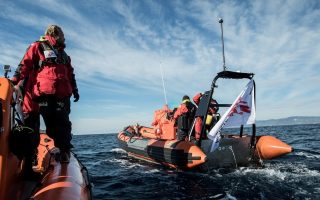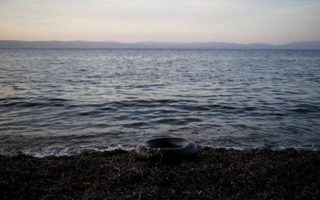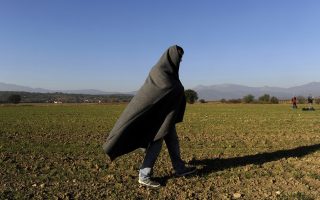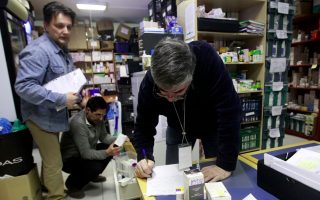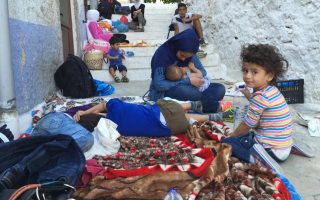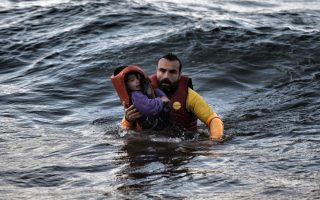World’s woes huddle on Greek shores as another crisis year looms
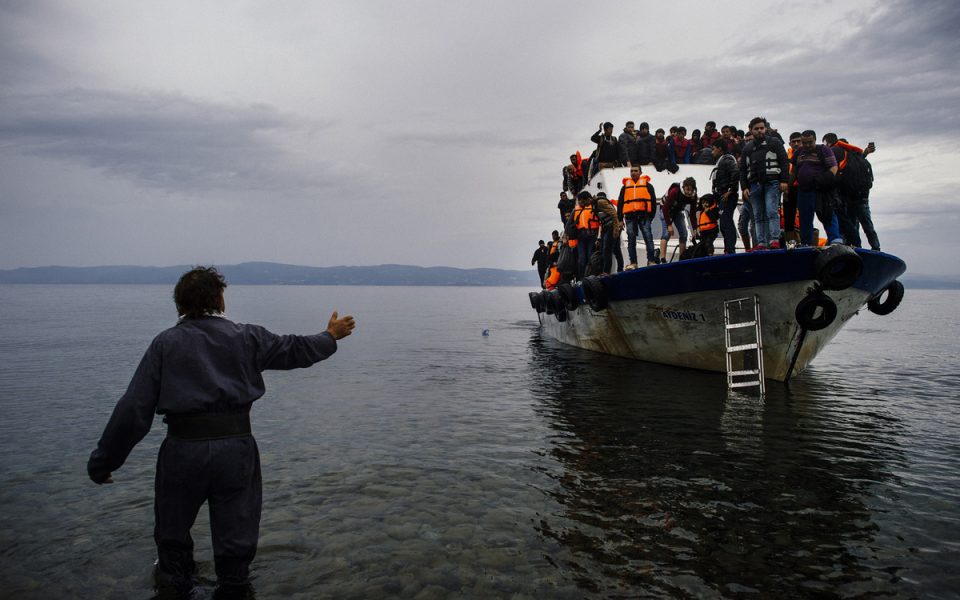
Sotiris Alexopoulos has been helping the desperate and destitute spawned by Greece’s economic free fall since he lost his job in 2010. This year, he began catering to a new group of stricken people: the thousands of refugees arriving at the port of Piraeus.
“We are like them, we had the same needs,” Alexopoulos, 65, said as he helped distribute food and clothing to some of the 1,400 who had traveled overnight on a ferry from the island of Lesvos, their entry point to Europe. “We are the poor people doing something to help ourselves.”
Alexopoulos and the 350-strong network of volunteers mark the nexus of the financial and humanitarian crises stalking the 28-nation European Union. Greece, dependent on international rescue money since 2010, is the soft underbelly of a continent straining to shelter the almost 900,000 asylum-seekers who landed on European shores this year.
As it enters 2016, the country remains as vulnerable to economic catastrophe as it is defenseless against the torrent of people fleeing Syria and other war zones.
Danger zone
“Greece isn’t out of the danger zone,” said Panagiotis Pikrammenos, who led a caretaker government in 2012 when Greece’s cash shortage risked unraveling the euro. “The coming months will be a make-or-break moment.”
After six years of recession and austerity, the economy is still a mess. Banks are restricting withdrawals, pensions are whittled and unemployment remains around 25 percent. The government is relying on an ever-slimmer majority in parliament to pass more of the legislation required in the most recent aid deal. But at least there was a deal and the bailout money is flowing.
The latest spending cuts tied to keeping Greece in the euro are only now kicking in and workers held their second general strike in less than a month this week. The measures are the result of a dramatic capitulation by Prime Minister Alexis Tsipras at a 17-hour overnight summit in July when his euro-area counterparts refused to budge from their austerity demands.
European leaders have long since turned their attention to stemming the flow of people from the war in Syria and, with them, any potential terrorists. Border checks following the Nov. 13 massacre in Paris are effectively undoing Europe’s Schengen agreement on the passport-free movement of people. A Syrian passport found next to one of the dead assailants in the attacks had been registered on the Greek island of Leros.
Carrying bodies
Before the summer, EU powwows dedicated to refugees passed with a fraction of the attention given to the drama unfolding over Greece. As Tsipras prepared to meet German Chancellor Angela Merkel on April 23, more than 700 migrants drowned when their boat sank off Libya, a harrowing portent of what was to come.
While bureaucrats worked through nights poring over spreadsheets in the spring and early summer, Sakellarios Billiris spent them lifting corpses out of the Aegean.
Billiris is the harbor master on Leros, where about 200 refugees — the lucky ones — most days first set foot in the EU after making the perilous trip from Turkey. “We were pulling overnighters throughout these months and we weren’t sitting at a table,” said Billiris, 50. “We were out in the sea, in the cold, carrying bodies.”
The Greek Coast Guard is on the front line of Europe’s gathering woes. The refugees keep coming while budget cuts mean paying for fuel and equipment is getting tougher. There’s also the opposition to immigrants in a country where the far-right Golden Dawn party placed third in Greece’s two elections this year.
“When you have 500 people outside at your yard yelling, crying, starving and you have some people on the other side yelling ‘immigrants out,’ it’s hard,” said Billiris. “No one at the time saw the immigration crisis with the gravity it needed to be looked at.”
Passing through
Leros is about 10 hours away by ferry from Piraeus and charity worker Alexopoulos.
Even as Greece’s economy shriveled by about a quarter since 2010, the country has coped with the influx of refugees because most don’t stay, Alexopoulos said. They head into former Yugoslavia and then north and west toward Germany and Sweden.
“It’s manageable because they are passing through,” Alexopoulos said. “If the flow now stops, God help us — and them.”
Greece has spent 1.5 billion euros ($1.6 billion) from its over-stretched budget on rescuing refugees and giving them accommodation, food and health care, Immigration Policy Minister Ioannis Mouzalas said this week. It’s now starting to access the EU money allocated to the country, but it’s not enough, he said.
Athens crossroads
For those remaining, the tree-lined Victoria Square in central Athens is where worlds collide.
There, nine metro stops on the green line from Piraeus, migrants collect wired money, regroup, and look for onward tickets. Many camp out, sprawled across the middle of the square with piles of bags and blankets. Around the perimeter are terraced apartment buildings and sidewalk cafes where locals sip coffee, read newspapers and discuss what they’re facing.
“Things are out of control,” said Anastasios Boubalos, 55, who sells cigarettes, newspapers and drinks from a kiosk on the square. He said with Greeks already fighting for survival, the country can’t afford new dependents.
“Greece is a poor country,” he said. “There are many Greeks who don’t have food, who can’t pay their bills.”
Prime Minister Tsipras, leader of the Coalition of the Radical Left, or SYRIZA, has pleaded that some of the conditions for the release of bailout funds should be eased to account for the impact of the refugee crisis. The latest objections were to making foreclosures easier.
Getting darker
“At the same time as we’re doing our duty to create the best conditions for these people to have shelter, even temporary, we’re on the end of unreasonable demands,” Tsipras, 41, said after a November meeting with European Parliament President Martin Schulz in Athens.
Tsipras was echoing his stance in late June when he rejected an agreement and called a surprise referendum on more austerity. Greeks backed him.
Faced with losing the euro, he caved in less than two weeks later, took Greece to a second election in eight months, won again, and started passing new measures through parliament. Yet the last vote, mainly on foreclosures, passed with a majority of just three after two of his coalition lawmakers defected.
For Giorgos Kaminis, the New York-born mayor of Athens, it was just another example of how Greece has failed to build sufficient political consensus to confront the economic catastrophe. Throw refugees into the mix, and he sees no brighter prospects going into another year of hardship.
“I see things getting darker again,” said Kaminis. “I have learned to live with a perpetual emergency situation.”
[Bloomberg]
